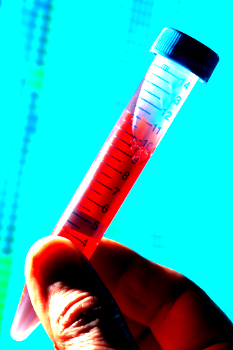HIV-free cells transplanted
 Chinese scientists have successfully transplanted genetically-edited blood cells into an HIV positive patient who also had leukaemia.
Chinese scientists have successfully transplanted genetically-edited blood cells into an HIV positive patient who also had leukaemia.
Using the gene-editing technology CRISPR - the researchers removed the CCR5 gene from blood cells before transplanting them into the patient.
The CCR5 gene is the same gene that was targeted in the world’s first gene-edited human babies, as cells without the CCR5 gene are largely resistant to HIV infection.
The researchers found that the blood cells without CCR5 hung around for more than a year.
The acute lymphoblastic leukemia was in complete remission with full donor chimerism, and donor cells carrying the ablated CCR5 persisted for more than 19 months without gene editing–related adverse events.
The percentage of CD4+ cells with CCR5 ablation increased by a small degree during a period of antiretroviral-therapy interruption.
However, they accounted for just 5 per cent of lymphocytes, a type of white blood cell, which the researchers say indicates the need for further research into this approach.
The full paper on the project is accessible here.








 Print
Print